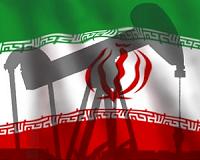 |
Kuwait City (UPI) Mar 30, 2011 Death sentences passed on two Iranians and a Kuwaiti for spying in the Persian Gulf emirate on behalf of Tehran has heightened suspicions that Iran has had a hand in the recent political upheaval in the strategic region. The heaviest clashes have taken place in the island kingdom of Bahrain, where long-downtrodden Shiite Muslims, who comprise 70 percent of the population, have demanded the fall of the 200-year-old Sunni monarchy. Since the rioting erupted Feb. 14, part of the unprecedented turbulence sweeping the Arab world, dozens of Bahraini protesters have been killed by security forces. Saudi Arabia, linked to Bahrain by a 16-mile causeway, has sent in 1,000 troops to help the al-Khalifa dynasty restore order and buttress the monarchy. There has been trouble too in Kuwait and Oman, the sultanate on the southeastern tip of the Arabian Peninsula which shares control of the strategic Strait of Hormuz, the only maritime gateway to the gulf and a vital oil tanker route, with Iran. But, analysts say, the Iranians' ultimate target is to paralyze Saudi Arabia's giant oil fields located in the Shiite-dominated Eastern Province -- right across the causeway from Bahrain -- and threaten the pro-Western monarchy. The Iranians' al-Quds Force, clandestine arm of the Islamic Revolutionary Guards Corps, has been reported to be aiding Shiite Houthi rebels in northern Yemen, where President Ali Abdullah Saleh is increasingly isolated amid nationwide demands he resign. A shipload of guns supposedly destined for the Houthis was reportedly intercepted March 24 by the United Arab Emirates, although this hasn't been confirmed. The Kuwaiti electronic newspaper al-Aan reports that two Iranian boats carrying weapons, possibly for Bahraini protesters, were seized off Qatar. But the Doha government denies that. Western intelligence agencies don't appear to be wholly convinced that Iran is involved in the political upheaval in the gulf, largely because of the lack of hard evidence. But the death sentences, handed down by Tuesday a Kuwaiti court, were seen by many in the region, long-troubled by Tehran's efforts to expand Shiite influence across the Sunni-dominated Persian Gulf and the Levant, as evidence of Iranian perfidy. "Tehran sees an opportunity to build on its successes in Iraq and shift the balance of power in eastern Arabia to favors the Shiites," the global security consultancy Stratfor observed. "Iran's best-case scenario in Bahrain is for the complete overthrow of the Sunni monarchy and it's focused primarily on that possibility. But that's not to say the Iranians are not meddling elsewhere at the same time." Riyadh's decision to activate the Gulf Cooperation Council's Peninsula Shield rapid deployment force to stiffen Bahrain's monarchy underlined the Saudis' alarm. Tehran condemned the deployment. The Saudis are by nature and tradition cautious and have long preferred diplomacy to military action. But they displayed their growing concern about the threat to the kingdom's stability in 2010 by deploying military forces to aid Saleh fight the Houthis on the kingdom's southern border. The recent unrest has also alarmed Washington. Bahrain is the headquarters of the U.S. 5th Fleet, a major component of the U.S. military presence in the region to contain Iran. Qatar, Oman and Kuwait all host major U.S. military bases. Regional states say Lebanon's Hezbollah, Iran's main paramilitary proxy in the Arab world, is involved in the gulf unrest. Hezbollah denies that, but its leader, Hassan Nasrallah, has repeatedly denounced the rulers of the gulf states in fiery statements. Kuwait's al-Seyassah newspaper reported last week the Persian Gulf Arab states planned to deport thousands of Lebanese Shiites suspected of being Iranian fifth columnists. Bahrain's foreign minister, Sheik Khalid bin Ahmed al Khalifa, said the government had evidence Hezbollah was involved in planning terrorist attacks. He gave no details but Bahrain banned its two airlines from flying to Lebanon, Iran or Iraq, whose Shiite-led government is considered to be controlled by Tehran. The United Arab Emirates expelled hundreds of Lebanese Shiites for similar reasons in 2009. The gulf Sunnis' unease has been heightened by the U.S. military withdrawal from Iraq, scheduled to end by December. This poses a problem for Tehran. If it pushes too hard in the Persian Gulf now, Washington may keep troops in Iraq. If that's what's happening, Iran's covert campaign may not yet have peaked.
Share This Article With Planet Earth
Related Links Learn about nuclear weapons doctrine and defense at SpaceWar.com Learn about missile defense at SpaceWar.com All about missiles at SpaceWar.com Learn about the Superpowers of the 21st Century at SpaceWar.com
 US blacklists Belarus oil firm for Iran ties
US blacklists Belarus oil firm for Iran tiesWashington (AFP) March 29, 2011 The United States on Tuesday added a Belarussian oil company to its blacklist of firms accused of flouting sanctions imposed on Iran for failing to rein in its suspect nuclear program. Belarusneft allegedly signed a $500 million dollar contract in 2007 with the Iranian firm NaftIran Intertrade to develop the Jofeir oil field. NaftIran was slapped in September 2010 with US sanctions as pa ... read more |
|
| The content herein, unless otherwise known to be public domain, are Copyright 1995-2010 - SpaceDaily. AFP and UPI Wire Stories are copyright Agence France-Presse and United Press International. ESA Portal Reports are copyright European Space Agency. All NASA sourced material is public domain. Additional copyrights may apply in whole or part to other bona fide parties. Advertising does not imply endorsement,agreement or approval of any opinions, statements or information provided by SpaceDaily on any Web page published or hosted by SpaceDaily. Privacy Statement |